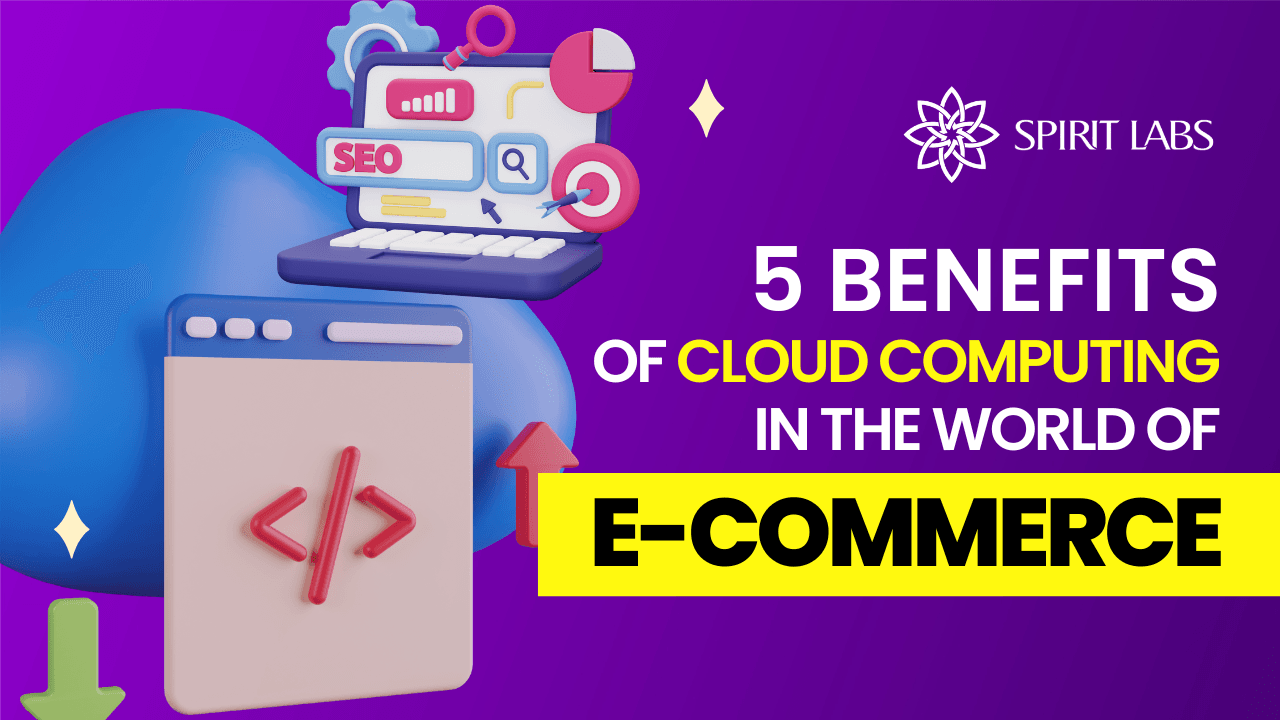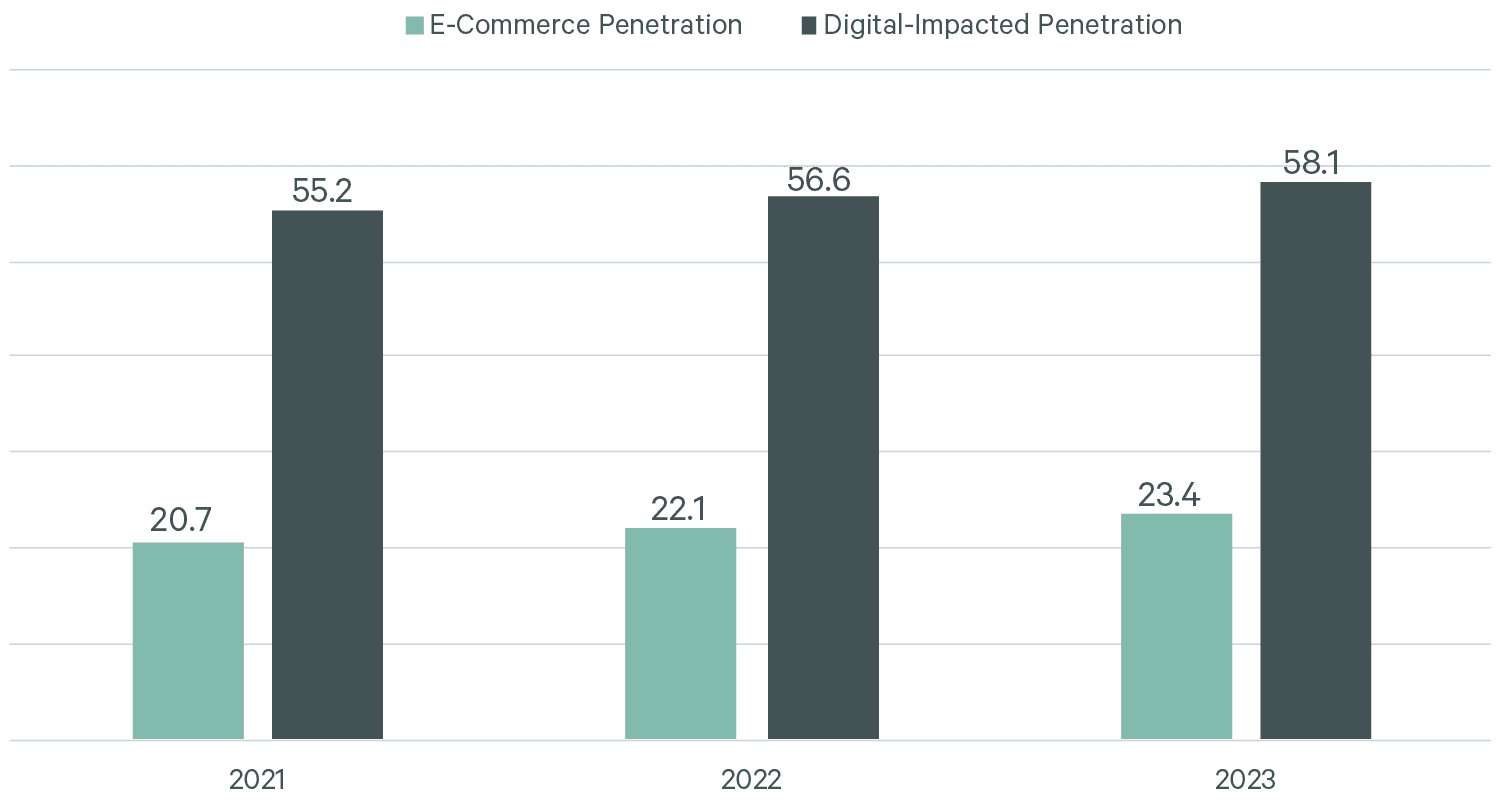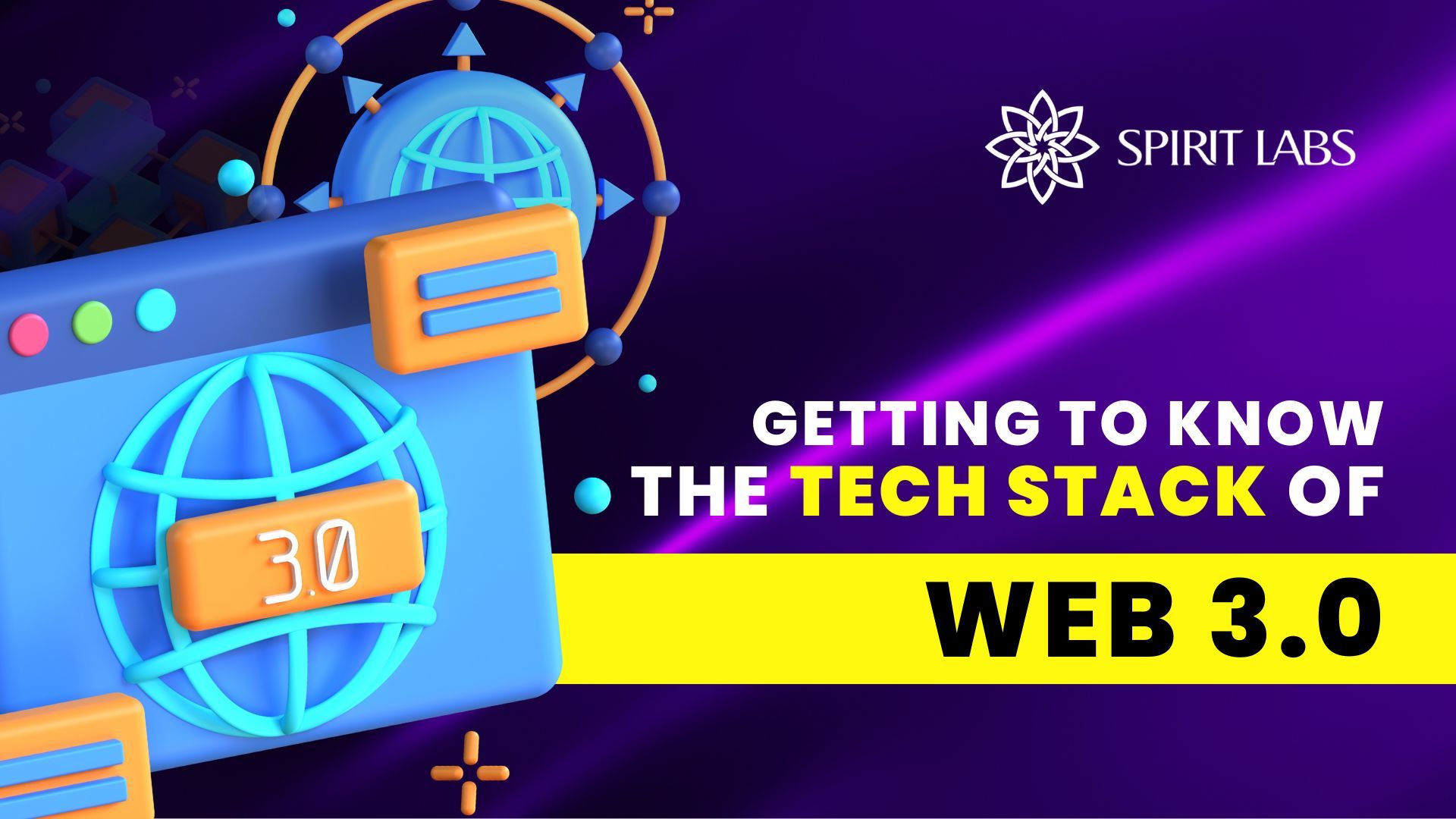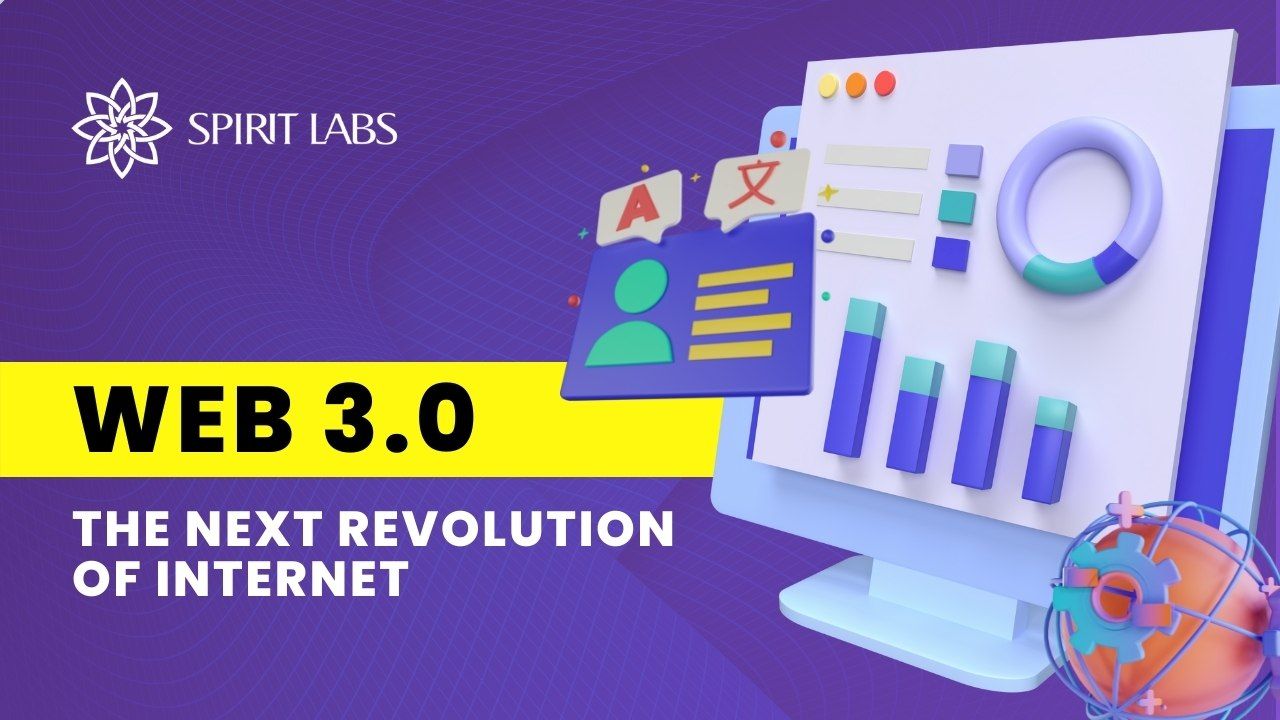
5 Benefits of Cloud Computing in the World of E-commerce
Retailers now have a huge potential to expand their online presence and business in order to boost sales and growth as a result of the movement in customer buying preferences from in-store to online. E-commerce has benefited greatly from cloud computing technologies during this transformation in many different ways.
Numerous businesses now have the most secure options for storing their critical data and boosting productivity thanks to cloud business tools and computing software. The advantages of cloud computing in eCommerce will be discussed in this blog with Spirit Labs!
The e-commerce market surged almost 34% in 2020 due to the pandemic. Its share of total retail sales is forecast to rise from 20.7.% in 2021 to 23.4% in 2023, averaging 1.3 percentage points each year by a research of CBRE. Moreover, digital-impacted retail sales, which include purchases made online and purchases made in-store by consumers who used a digital channel to research or browse, are expected to rise even higher. In general, digital-impacted sales are predicted to be more than $2.4 trillion and account for more than 58% of total retail sales by 2023.

Forecast of Total Shares of Retail in E-commerce by CBRE
Additionally, according to 47% of retail executives, the global pandemic sped up the use of cloud computing in their organizations. According to Forrester analysts, the cloud will drive the entire revival of the retail and e-commerce sectors eventually.
Cloud E-commerce, which is the application of cloud computing, uses cloud-based technology to manage and grow data storage, hosting, and digital commerce applications like virtual payments, inventory management, and product information management.
To manage large numbers of transactions and traffic to online sales channels, cloud e-commerce makes use of server clusters and other cloud-based solutions from cloud suppliers. Digital retailers utilize it as a way to rapidly respond to increasing demand, improve security, make maintenance easier, and haphazardly develop or integrate new e-commerce services.
A cloud-based platform, as opposed to older on-premise systems, enables businesses to outsource their IT infrastructure without spending money on pricey on-premise equipment and upkeep. Additionally, some e-commerce Software as a Service (SaaS) providers oversee every part of the system, including the creation of new application features.
There are generally 3 cloud-based e-commerce systems that enable businesses to manage customer data, product data, inventory data, website hosting, digital transactions, and a variety of other e-commerce requirements. These options range from a retailer's engagement to a minimum, and include Infrastructure as a Service (IaaS), Platform as a Service (PaaS), and Software as a Service (SaaS).
Check out our last blog to have a better understanding about the technical differences between these types of cloud services and some essential definitions for your cloud transformation in the near future:
https://spiritlabs.co/blog/what-is-a-cloud-service
Handling e-commerce in the cloud system seems like an easy thing. However, there are hundreds of things to account for. That is why companies with e-commerce platforms need to decide which solution is suitable and affordable for their digital transformation. Here’s our suggestions when it comes to choosing the base of cloud for your e-commerce system.
Who can benefit the most from Software as a Service (SaaS) in e-commerce? Small to medium companies that need quick launch and have no in-house development.
Who can benefit the most from Platform as a Service (PaaS) in e-commerce? Companies that are developing on their based e-commerce platform and need access to the code, storage, and databases from cloud providers.
Who can benefit the most from Infrastructure as a Service (IaaS) in e-commerce? Large-scale online retailers or marketplaces that need to have complete ownership of their processes. It can also be beneficial for e-commerce businesses with scaling needs.
Without cloud solutions for e-commerce, businesses have to generate and manage on-premise hardware by themselves, which includes a great deal of moving parts—web hosting, data storage, payment processing, etc. By adopting cloud-based e-commerce platforms, you can have better scalability, flexibility, security, cost efficiency, agility, and ease of use with your e-commerce solution. This is the best solution for your business to focus on the success of the product and have full control over data, while having the support from professional cloud providers.
Here are some crucial benefits of adopting cloud computing for your e-commerce advancement.
Cloud computing can accommodate the changing requirements of e-commerce websites. Your expansion will be slowed down if you add more servers on your own or raise money to expand your IT infrastructure. It enables the businesses to expand their online presence as rapidly as their overall business growth and perfectly complements the needs of the retail sector. So, why don’t we start exploring a cloud server now?
Cloud services enable businesses to scale up or down depending on website traffic, seasonal fluctuations, and other business difficulties. According to the market situation, it provides e-commerce enterprises with a scalable architecture. For maintenance services, there is no need to invest in more hardware or engage new personnel. With the use of cloud computing services, any resource may be obtained as needed.
Scaling up or down an IT solution's power is made simpler by cloud computing. It enables for the quick addition of resources to accounts and the immediate removal of those resources. With this useful service, you won't have to worry about running out of storage or about customers being unable to access your online business.
The number of virtual computers can be increased with just a few clicks by IT administrators. They can lower the expense of a large onsite IT workforce while also offering and customizing services.
The performance dependability of cloud computing is another major benefit. In times of significant traffic spikes like Black Friday sales or promotional campaigns, you have reliable and predictable performance. On the other hand, unplanned traffic spikes may result from the introduction of a new product, the offering of discounts, or the beginning of a new advertising campaign on an e-commerce website. The stability of the site can suffer as a result. For online shopping, the power of cloud hosting offers improved stability. House your IT infrastructure in cutting-edge data centers to prepare for those traffic spikes.
Customers frequently visit these websites in search of fresh offerings and deals. Many people visit websites more regularly as a result of expanded internet access, particularly among young people. By hosting their IT infrastructure in the data centers of these cloud services, e-commerce websites may have consistent and predictable performance while preparing for such traffic surges.
Cost can be a significant consideration for the majority of e-commerce businesses, especially those who are just beginning to establish their presence. For SMEs, Startups, Entrepreneurs who are beginning to build their online presence and reputation, cloud computing offers crucial savings since you only pay for what you use. Adopting cloud computing services can significantly reduce expenses when compared to traditional hosting if properly planned and implemented.
These costs are typically operational rather than capital-related. This enables businesses to spend less money up front on IT infrastructures including hardware, energy, facilities, and a sizable data center. Additionally, since data centers for cloud operations can be outsourced to the cloud provider, businesses do not require sizable IT staff to manage them. All of this leads to significant cost savings that may be used to expand the firm in other ways, including by investing in SEO services.
Various vendors can have different offerings, but overall the cloud can provide PCI-DSS certified hosting, which is extremely important in GDPR compliance. With the advent of GDPR, PCI-DSS certified hosting is more crucial than ever thanks to cloud computing. Furthermore, cloud technologies can guarantee better security safeguards to safeguard you from DDoS attacks, which can make visitors lose faith in the dependability of your website.
Consumers choose e-commerce for a number of reasons, chief among them being convenience and ease. But security and safety should not be sacrificed for convenience. If trust is betrayed, a consumer is unlikely to ever return.
Personalization is one of the key factors for the brisk rise of e-commerce because everyone loves a tailored purchasing experience. Customers appreciate individualized information such as specific product recommendations to aid in making knowledgeable purchasing selections, targeted mail to learn about the upcoming major sale or offer, and so forth.
E-commerce players often have their customers' socioeconomic data and purchase patterns to ensure this personalized approach. A very strong, dependable, and secure IT infrastructure is needed to protect this client data and their purchasing habits.
Everyone is aware that users like quick websites. One of the key elements that affects whether visitors stay on your website or move on to the next choice is speed.
If a website takes longer than 3 seconds to load, 40% of visitors are likely to leave. A visitor who is unsatisfied with the site's performance is 79% less likely to make a purchase there and is also more likely to spread negative word about the UX. Up to 44% of internet customers complain to their friends about unpleasant user experiences. You may increase the speed and functionality of your e-commerce site by simply migrating to cloud computing.
As previously said, the majority of e-commerce sites encounter an unexpected spike in traffic for a variety of reasons, which causes the speed to be noticeably slowed down or the site to become unresponsive. Migration to cloud computing is the answer to this serious issue. Greater bandwidth, enhanced computational power, and increased storage capacity are all provided. A fast e-commerce site not only improves UX but also generates more revenue for your business.
We have listed 5 mind-blowing reasons for e-commerce businesses to start benefiting from cloud services. Understanding the advantages of cloud computing and adopting it with a proper plan leads to a scalable infrastructure and a shift in customer buying behavior. With immediate advantages like data security and indirect ones like more covert customer acquisition through improved search ranks, cloud computing in eCommerce may empower and improve online retail sites. Cloud e-commerce will undoubtedly experience a number of innovations and unexpected changes in the future that will take businesses to the next level.
If you are having an idea to upgrade your online retail platform with cloud-based solutions, contact us now for the consultation on cloud services: https://spiritlabs.co/contact-us
REFERENCES:
- Article: How High Will E-Commerce Sales Go?
- Blog: Everything you need to know about e-commerce in the cloud
- Blog: What Is Cloud E-Commerce?
- Blog: 5 WAYS ECOMMERCE CAN BENEFIT FROM CLOUD COMPUTING
- Blog: 5 Ways That E-Commerce Benefits from Cloud Computing
- Blog: 5 Mind-Blowing Benefits of Cloud Computing in the Ecommerce World


